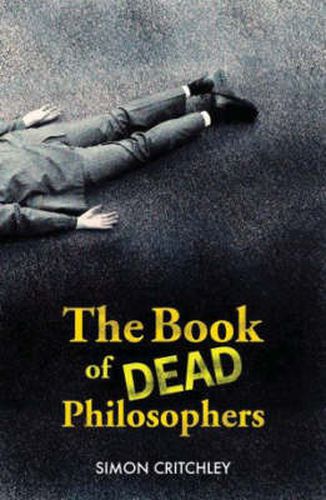Readings Newsletter
Become a Readings Member to make your shopping experience even easier.
Sign in or sign up for free!
You’re not far away from qualifying for FREE standard shipping within Australia
You’ve qualified for FREE standard shipping within Australia
The cart is loading…






The Book of Dead Philosophers chronicles the deaths of almost 200 philosophers-tales of weirdness, madness, suicide, murder, pathos and bad luck.
Diogenes died by holding his breath.
Plato allegedly died of a lice infestation.
Diderot choked to death on an apricot.
Nietzsche made a long, soft-brained and dribbling descent into oblivion after kissing a horse in Turin.
From the self-mocking haikus of Zen masters on their deathbeds to the last words (gasps) of modern-day sages, The Book of Dead Philosophers chronicles the deaths of almost 200 philosophers-tales of weirdness, madness, suicide, murder, pathos and bad luck.
In this elegant and amusing book, Simon Critchley argues that the question of what constitutes a ‘good death’ has been the central preoccupation of philosophy since ancient times. As he brilliantly demonstrates, looking at what the great thinkers have said about death inspires a life-affirming enquiry into the meaning and possibility of human happiness.
In learning how to die, we learn how to live.
$9.00 standard shipping within Australia
FREE standard shipping within Australia for orders over $100.00
Express & International shipping calculated at checkout
The Book of Dead Philosophers chronicles the deaths of almost 200 philosophers-tales of weirdness, madness, suicide, murder, pathos and bad luck.
Diogenes died by holding his breath.
Plato allegedly died of a lice infestation.
Diderot choked to death on an apricot.
Nietzsche made a long, soft-brained and dribbling descent into oblivion after kissing a horse in Turin.
From the self-mocking haikus of Zen masters on their deathbeds to the last words (gasps) of modern-day sages, The Book of Dead Philosophers chronicles the deaths of almost 200 philosophers-tales of weirdness, madness, suicide, murder, pathos and bad luck.
In this elegant and amusing book, Simon Critchley argues that the question of what constitutes a ‘good death’ has been the central preoccupation of philosophy since ancient times. As he brilliantly demonstrates, looking at what the great thinkers have said about death inspires a life-affirming enquiry into the meaning and possibility of human happiness.
In learning how to die, we learn how to live.